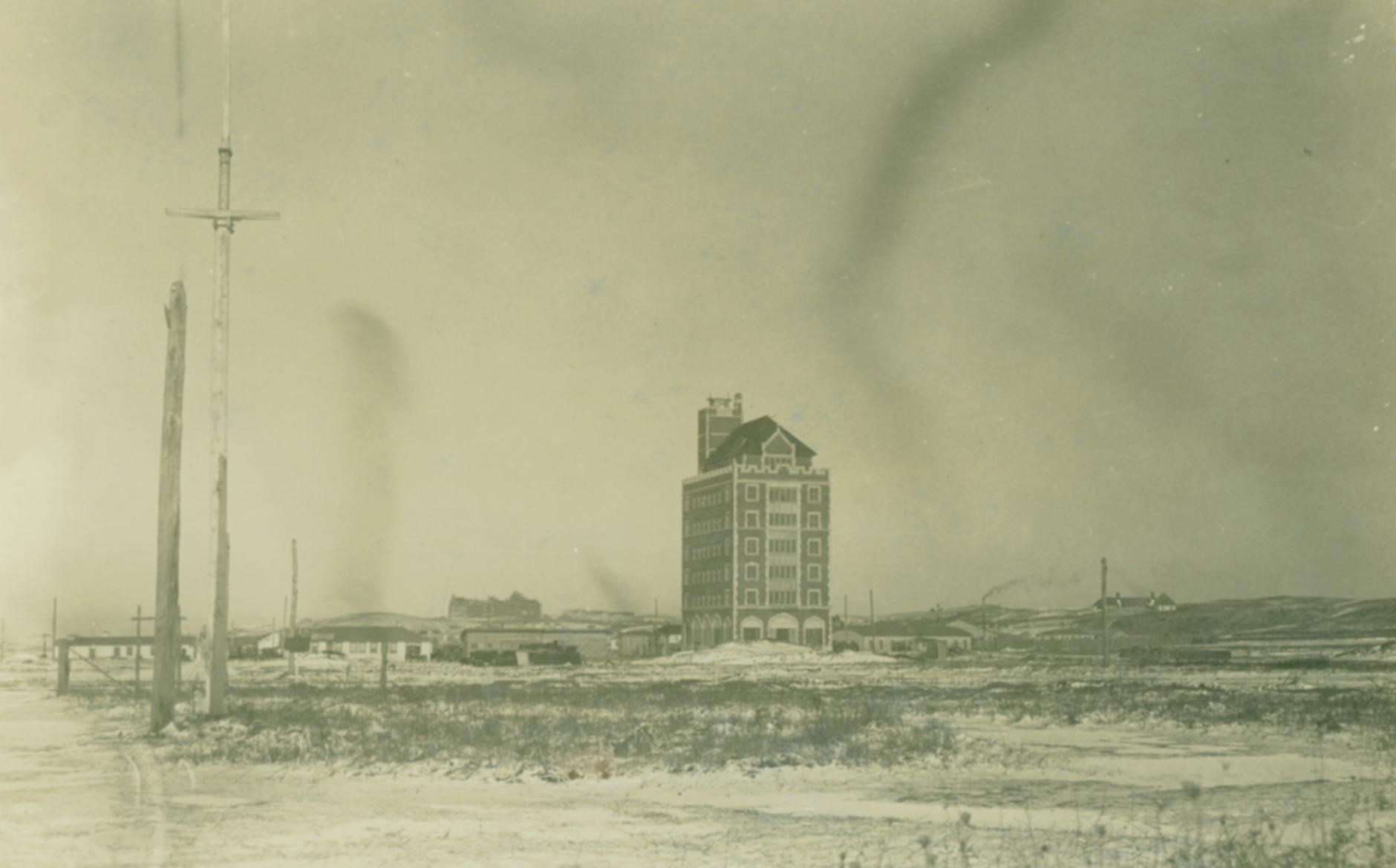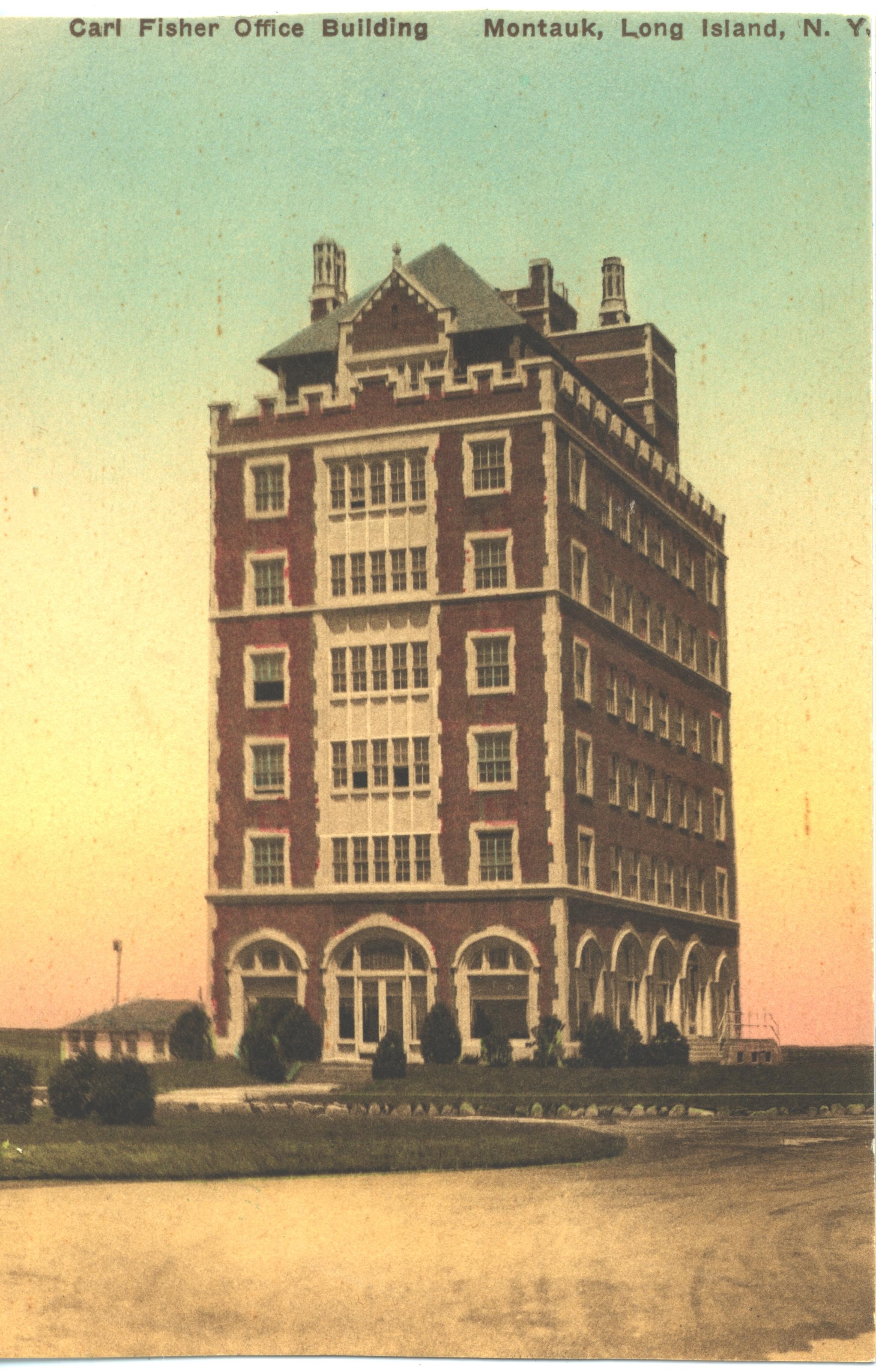


“A seven-story office building went up on Great Plain, in the middle of a new business section,” Jeannette Edwards Rattray wrote in 1938 in her book about Montauk history. “On the top floor of the Montauk ‘skyscraper’ was Carl Fisher’s office, with a balcony around it, where he could sit like a monarch surveying his domain.”
Fisher had commissioned the architectural firm of Schultz and Weaver to design the mock-Tudor office building based on plans for his office building in Miami Beach. The idea was to bring prospective buyers to the penthouse, where they had a 360-degree view and could decide which Montauk property to purchase.
The natural landscape seen from the balcony — the Atlantic, Block Island Sound, Fort Pond and Fort Pond Bay, rolling hills and distant coasts — would have been breathtaking. But the manmade domain of Carl Fisher, the developer who wanted to make Montauk the “Miami Beach of the North,” would have taken one’s breath on its own.
By the time his seven-story office tower had been completed, in June of 1927, workers had also completed the luxurious Montauk Manor, an entire village at Shepherd’s Neck, and a golf course, among other projects, and cut an inlet and a harbor at Lake Montauk. In addition, they had essentially transformed “Great Plain” into a new downtown Montauk, constructing – within spitting distance of the office tower – the mock-Tudor buildings that today house White’s Liquors, the Montauk Circle restaurant, and Herb’s Market. “Prices for land in that section immediately rocketed,” wrote Jeannette Edwards Rattray of the tower’s effect.
While Fisher had his offices on the top floor of the tower, the sales department of his Montauk Beach Development Corporation worked from the ground floor. Thanks in large part to the Depression, the corporation went into receivership in 1932 and Fisher’s dreams for Montauk died before he did in 1939. Like much of Montauk, the office tower was taken over by the Army and Navy during World War II, in this case for officers’ quarters.
Fully or partly abandoned in ensuing decades, the once-glamorous landmark came to be known locally as the White Elephant. (At one time it was eyed for use as a rooftop restaurant.) The Montauk Improvement Company, a descendant of Fisher’s original corporation, was the sole tenant, operating on the ground floor, in 1964 when a young Dan Rattiner inquired about using the penthouse for an office. The elevator hadn’t worked in decades, he wrote in Dan’s Papers in 2020, so he explored the lower stories after becoming “giddy enjoying the best view of the entire Montauk peninsula.”
“Papers, old manual typewriters, two-piece telephones were strewn about. There were also filing cabinets, conference tables, and bookshelves. Everything was covered with dust. And on one wall, on the third floor, I saw a large wall calendar opened to JUNE 1938.”
“Apparently, the workers had abandoned the building on a single day in June of 1938. Just upped and walked out,” Rattiner wrote.
A real estate developer, H. Dale Hemmerdinger bought the office tower in 1980. He converted Fisher’s “skyscraper” into a 21-unit luxury condominium, which is how it is operated today.
#theToweratMontauk #CarlFisher #WhiteElephant #Montauk #MontaukHistory #TBT #ThrowbackThursday #MontaukSkyscraper

3 Comments
Fabulous history, Virginia.
Accurate history thanks Virginia for putting this together. Quite the history that building has!
Proud to say my grandfather Ziggy worked for Carl Fisher and built the White Elephant as well as all the other buildings. I have deep roots in Montauk.